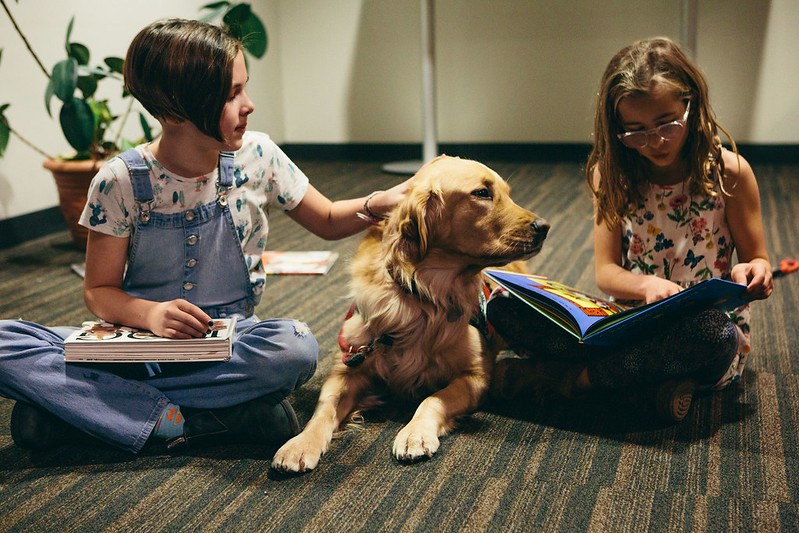Snuggling up to a pooch might just help your child with their reading, the results of a recent UBC Okanagan study suggest.Ã˝
In what appears to be the first study of its kind, UBC Okanagan education researcher Camille Rousseau and Brock University’s Christine Tardif-Williams assessed reading motivation among 17 children between six and eight years of age, with one cohort reading alone and the other in the company of a therapy dog.
Before the tests began, each child had their reading level tested to ensure they were given story excerpts that would challenge their own abilities.
During the tests, children would read aloud either to an observer or the dog and its handler if they were part of the cohort reading alongside a canine. After reading one page, each child was given the option to continue with a second reading task or stop there.
In the end, the children told researchers they felt “significantly more interested and more competent when reading in the presence (versus absence) of a therapy dog." They also read longer when with a dog than without, suggesting the canines not only helped motivate kids to read difficult writing but also improved their reading persistence.
“This research holds implications for the development of a gold-standard canine-assisted intervention for young struggling readers,” wrote the researchers in Anthrozoös, a academic journal that publishes research on the interactions between people and animals.
Rousseau said she hopes the results of the study help educational organizations understand how children’s reading can be boosted by the presence of a pooch, according to a spokesperson for the university.




